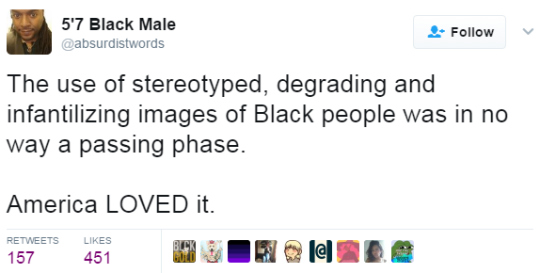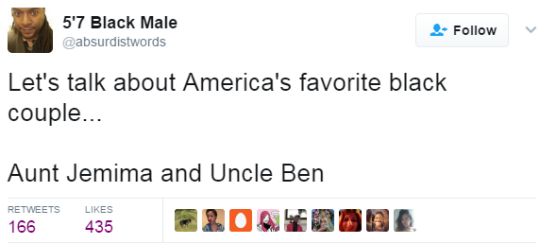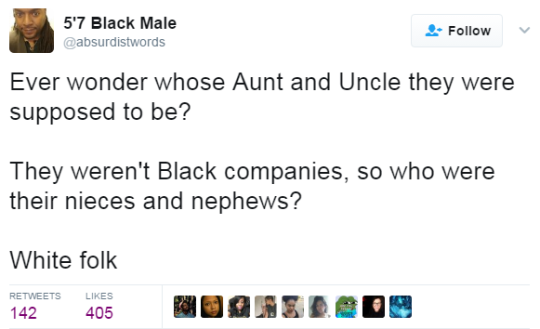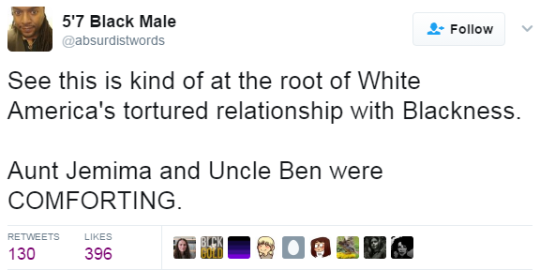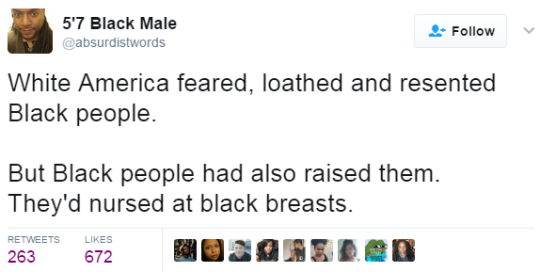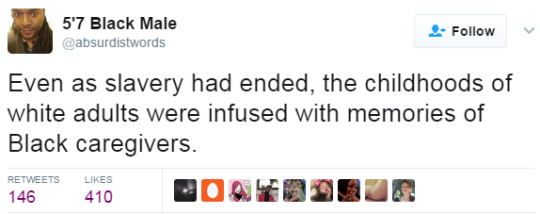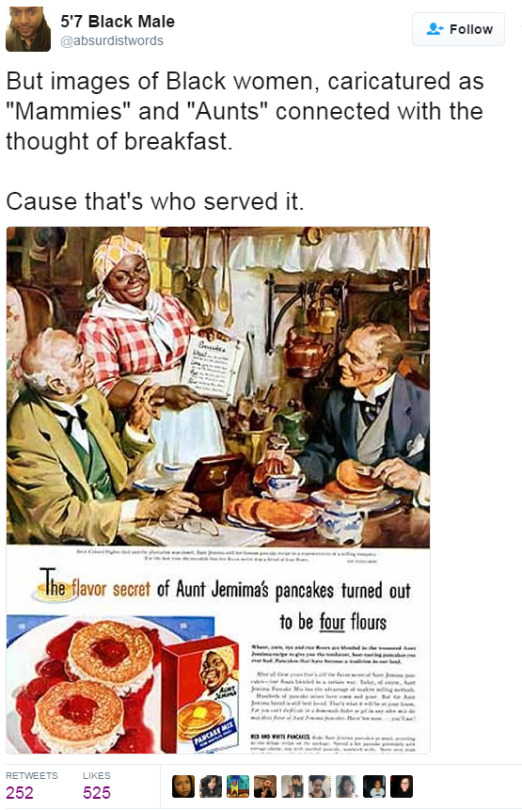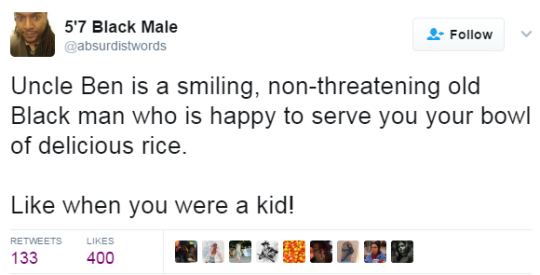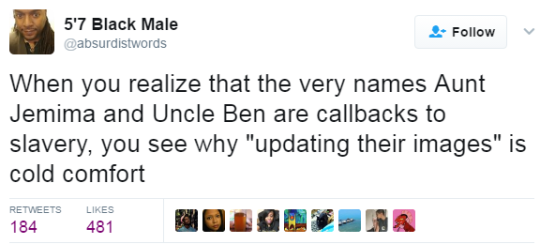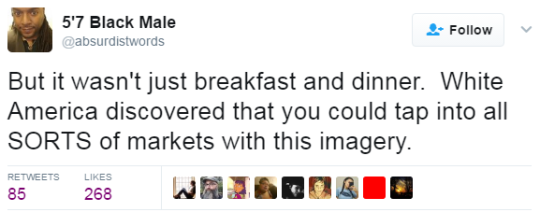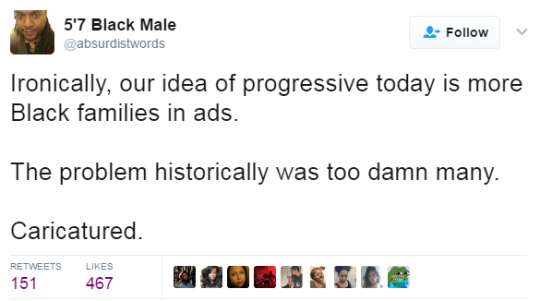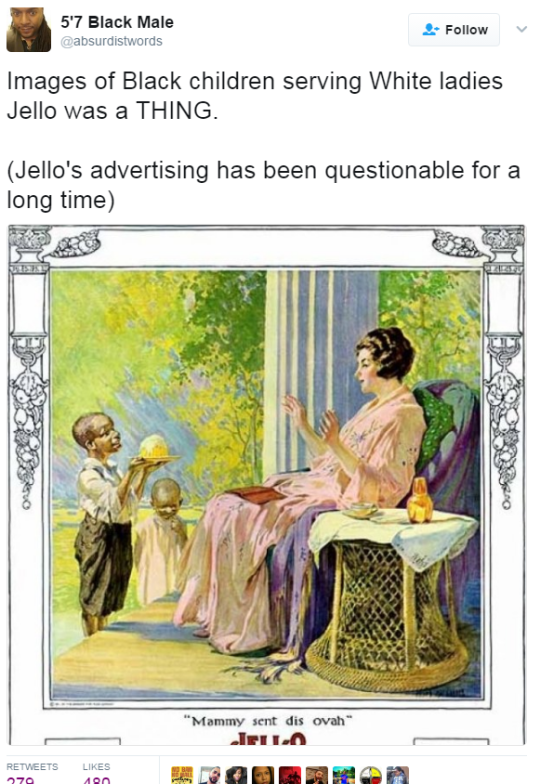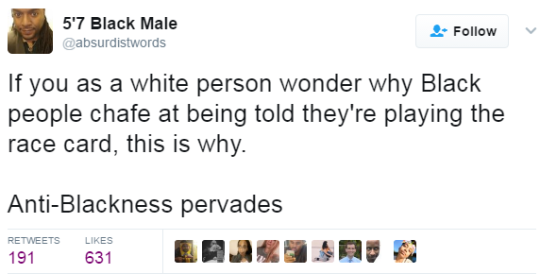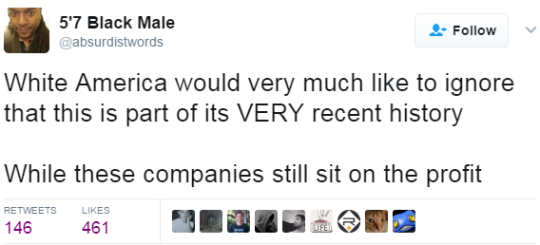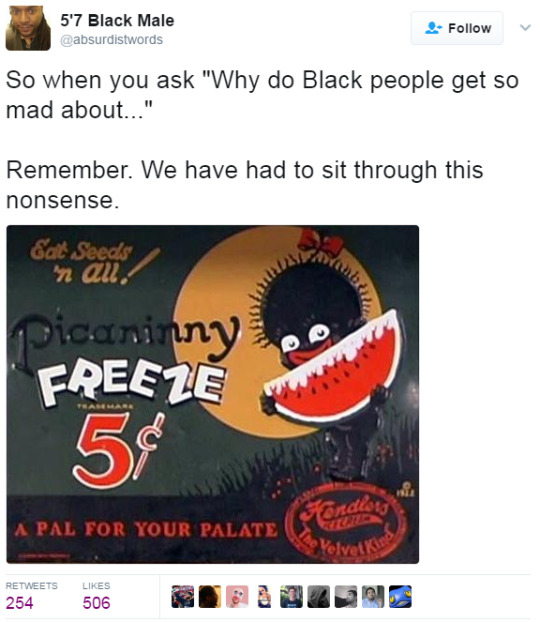I'm Black, Autistic, Asexual, Atheist somewhere between neurtois & ftm. I have ADHD and Major Depressive Disorder. I live in Southern California (USA). I like crime dramas and guinea pigs. My thoughts are tagged #Zay Talks
Don't wanna be here? Send us removal request.
Text
me: middle school honor student about to go into high school
undiagnosed mental illness:

80K notes
·
View notes
Text






Jameela Jamil on fat discrimination in our society. She’s my hero.
35K notes
·
View notes
Text
being autistic/adhd is also having NO voice regulation like you think you’re using your regular voice but someone tells you to keep it tf down and you’re like ??? and then other times you’re trying not to be loud and become whisper-soft and nearly tremulous whaaaat
22K notes
·
View notes
Photo






Hey have another sketchy personal comic for autism acceptance month.
2K notes
·
View notes
Text
Autistic culture is not being sure what to do with your hands while walking because you’ve been constantly told that having your hands in your pockets is rude and dismissive and crossing your arms is rude and standoffish but you can’t just have them out doing nothing like a fucking HEATHEN
245 notes
·
View notes
Text
being at war with yourself is exhausting. don’t ever think for a second that your pain isn’t valid, that it isn’t real or that people who don’t understand get to tell you whether it hurts or not. also know that i believe in your ability to survive this and anything else, everything else.
4K notes
·
View notes
Text
“Autism is a set of traits that cause differences in how a person interacts with the world. If one or more of these traits presents strongly enough, then it can be disabling, but a lot of people are walking around with autism that isn’t easily recognized by outsiders. These are the ones who so often go undiagnosed.
The really important thing to understand is that you can be autistic without being disabled. You can be autistic and severely disabled. You can be autistic and have high support needs for years, and then manage to transcend that state and lead an otherwise normal life. You can be autistic and brilliant and successful and then find yourself struggling more and more for reasons you don’t understand, eventually leading to disability.
When you’ve met an autistic person, as the saying goes, you’ve met one autistic person.”
8 notes
·
View notes
Text
I can’t stand… book culture. One time someone got me a canvas bag that was like “Books + Tea = Perfect Day” and I drove to goodwill with that shit so fast
93K notes
·
View notes
Text
The finalized version of the autistic vocabulary that was posted in my school’s newsletter. I’d like to thank everyone who helped contribute to this and can help explain terminology to those in need.
Autistic Vocabulary
The English vocabulary is vastly different than how it was thirty-eight years ago. It’s even different than it was ten years ago. If you were being bullied in the eighties it would be a “grody” situation. Nowadays it would simply be referred to as a “hot mess”. Autistic vocabulary is no different, we have our new words too, to help not only explain autistic behavior. For the way that some of us may or may not like to be called by. Terminology for non-autistic people too that we can use and call them by. This article will be a chance to learn that terminology and perhaps broaden other’s vocabulary.
#actuallyautistic- A safe space tag for people on the spectrum that isn’t for people who do not have autism. It’s a way for speaking our own truths in the community that has a better time for the most part at understanding us. This tag can be found on popular social media sites/apps such as Tumblr Facebook, Twitter, Instagram, Youtube and so on.
#autism acceptance- A large quantity of the masses are already aware of autism to an extent. What this tag is trying to explain is that we need more acceptance for who we are as people and in society.
#redinstead- If you see this tag it means a person is against Autism Speaks. Autism Speaks uses #light it up blue for their brand of autism awareness. This tag is made by an autistic person to be used by autistics and allies to promote autism acceptance.
Ableism/Ableist- (aye-bal-ism or aye-bal-ist) A person who defines a disabled person on what they can and cannot do. Or if they are even disabled at all. They can have little to no prior knowledge or be a friend/partner/family and do this to a person. They view disabled people on their worth and what they can and can’t do from their perspective.
Neurodiversity- (nur-o-div-er-isty) A neuro difference of the human brain compared to most brains. It is a viewpoint backed by scientists. Neurodiverse brains are variants of the human genome. There is a movement going on right now called the Neurodiverse Movement which is all being categorized as an Autism Rights Movement and a civil rights movement. Fighting for more accommodations and better treatment such as technologies, home care, medical help, monetary support educational support and help with discriminations.
“Nothing about us without us”- Started by the Disabled Movement in rallying for rights and support. This statement is the catchphrase for ASAN the Autistic Self Advocacy Network. It’s pretty self-explanatory in meaning if it’s not backed by an autistic people you probably shouldn’t be using/apart of it.
Stim/Stimming (St-im) (stim-ing)- Self soothing repetitive habits that help calm down autistic people. It should be noted that not only autistic people stim but people with ADHD do too and anyone can stim. Which was why the fidget spinner and fidget box phase was going so well because stimming helps not only regulate the body but help you focus as well. The technical terminology is self-stimulatory behavior. It could be a bodily motion by spinning, hand flapping, chewing, hair twirling, pen clicking, there is no specific way to stim. Some may be more common than others. There can be more subtle ways to stim such as visual and auditory. You could listen to certain songs over and over again or only one song but reputedly. Looking at certain pictures on your phone might help too. These are the only some of the wide range of stim’s culture that can be interpreted in many different ways that can be gratifying.
Spoons/Spoon theory- Spoon theory was originally used to describe chronic illnesses by Christine Miserandino but has branched out in supporting people with mental illnesses and autistics with an explanation. The explanation of our energy on mental, social, and physical and how it works.
They are used as a representation of how much energy we have throughout to day-to-do certain tasks. If someone only woke up with twenty spoons they would have to manage how many they used throughout the day. 5 for getting dressed, 1 for making breakfast, and so on and so forth. Once you run out it’s just that you’ve run out and we can’t get our energy back or push through like many other people. We have to take a rest and trying to get it back by stimming, taking part in a special interest, or just taking a five-minute sit in a dim quite area. Sometimes depending on how much energy was expended that may not even help. So that’s why it’s important to plan carefully on how we use them and no prior to what we are doing.
Scripting- Scripting is when an autistic person has practiced a certain set of words or phrases to say in social interactions. It can be used for a variety of circumstances when getting through the social world.
Example: Barb has a hard time ordering food at Mcdonald’s at the cash register her words become jumbled, anxious, and she forgets what she wants to order and becomes silent. Barb has been practicing the same phrase prior in the mirror for five minutes before she came to McDonald’s. Barb has remembered her order and was able to communicate what she wanted.
SpIn- (sp-in) It’s just a shorter way of saying Special Interest.
Twice exceptional or 2e- A term in the educational field for people with learning and mental disabilities. It refers to “gifts” they have such as the things they excel in (reading, math, art, so on) and their disabilities.
Allistic- (allie-is-tic) Specifically means to not be autistic.
Masking- Commonly seen as a female presenting autism trait but any orientation with autism can do it. It’s when an autistic person masks their autistic traits in order to blend in with the world around them. It can help them with getting friendships, family, jobs, and even relationships. In the long haul, masking is unhealthy and leads to more psychological problems then it does good.
686 notes
·
View notes
Text
when you wish to acquire information but adhd/autisim says "uwu too many words" AND YOU SKIP THEM ALL AND HAVE TO READ IT OVER >:/
372 notes
·
View notes





